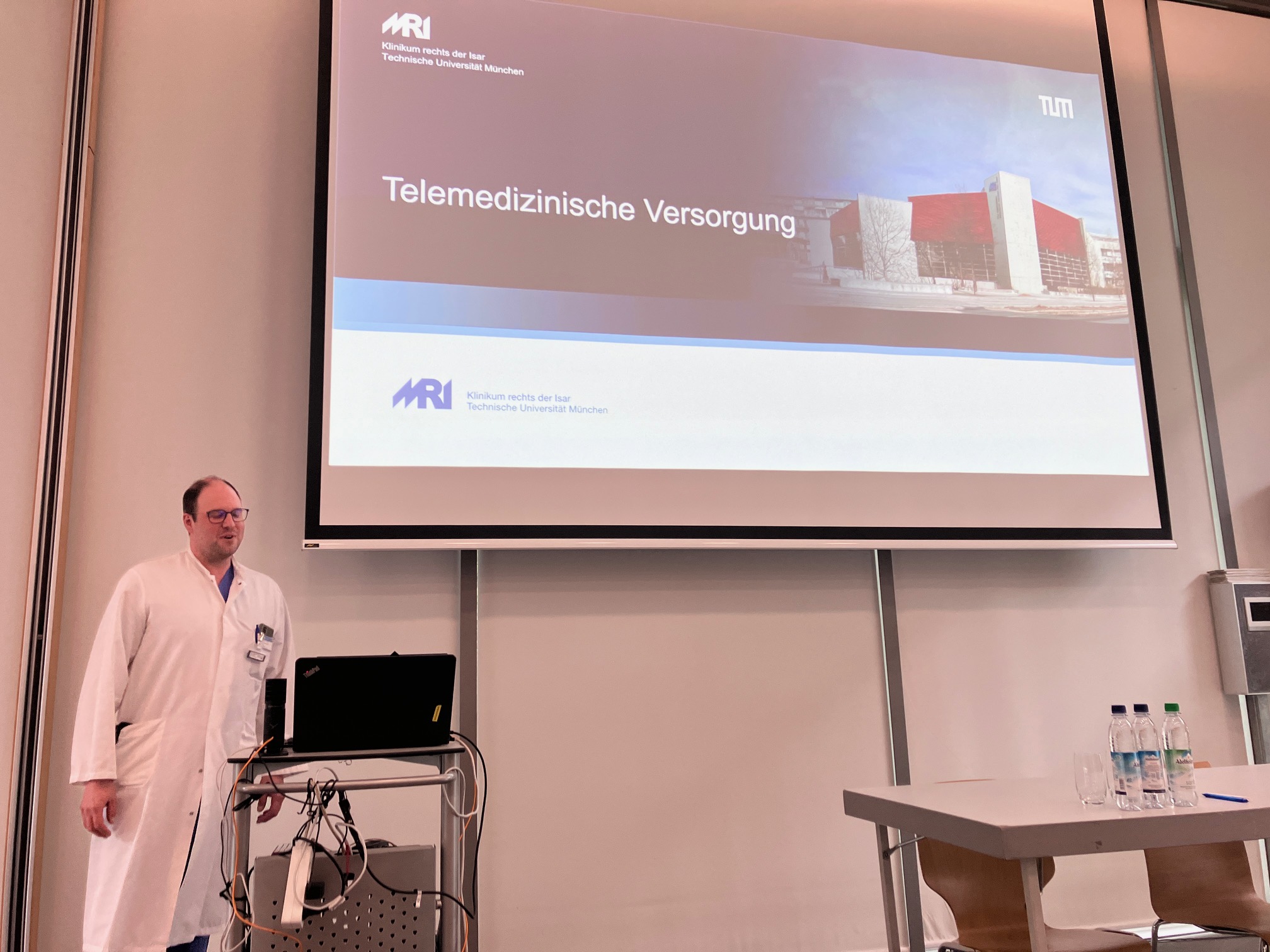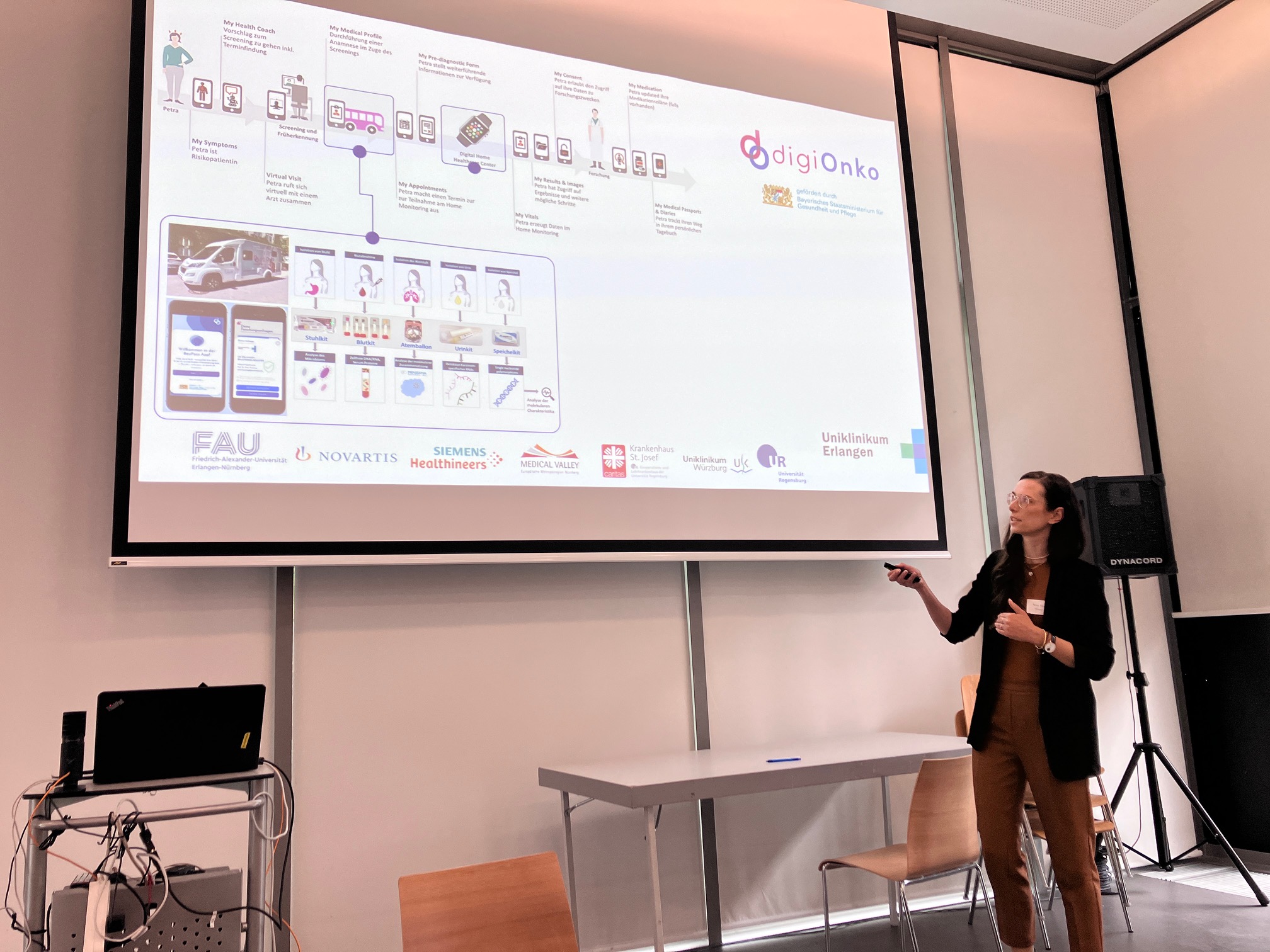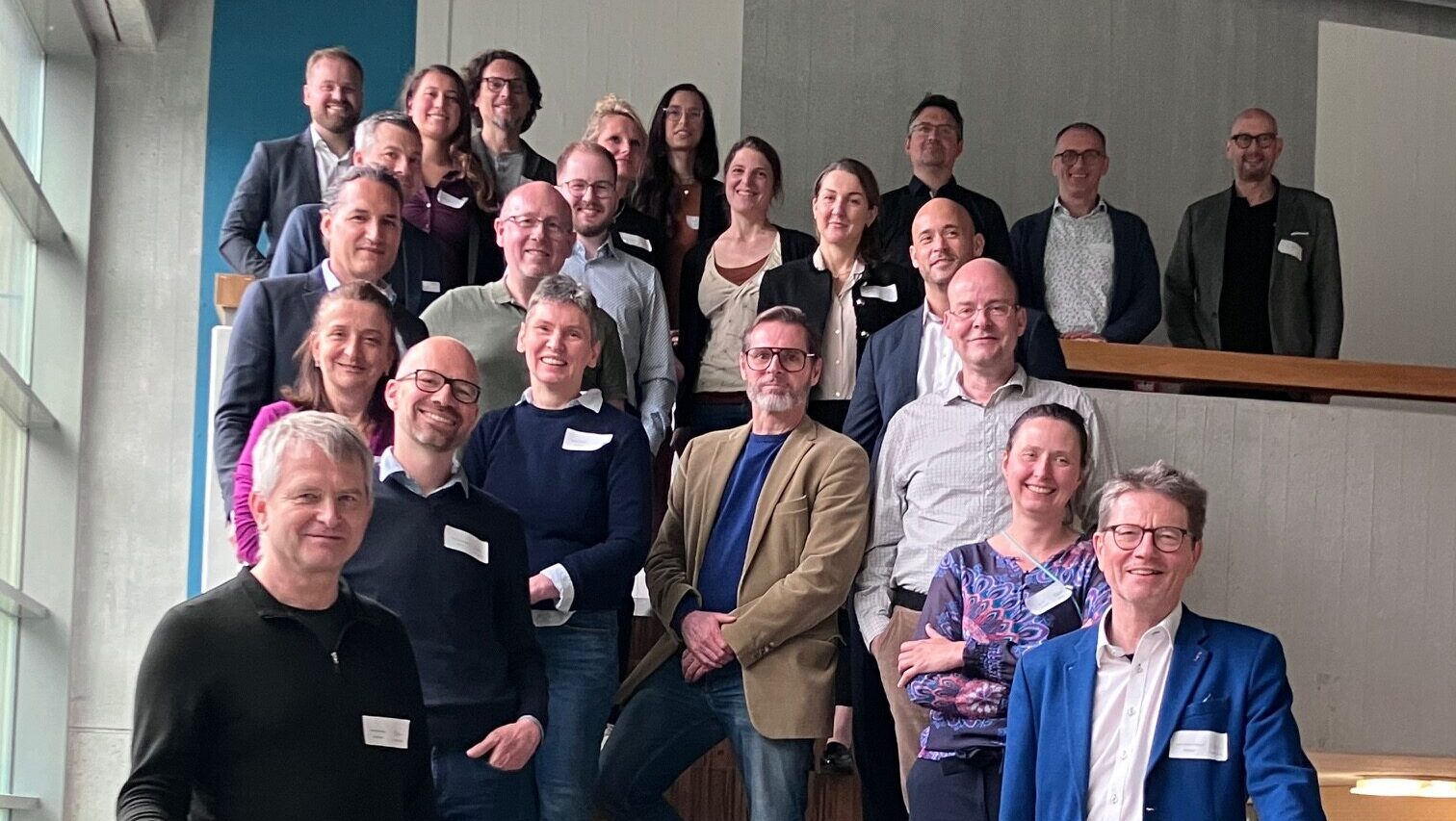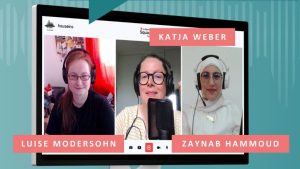On 3 May 2024, the first MIDIA Hub (MIRACUM DIFUTURE Alignment Hub) symposium took place at the Klinikum rechts der Isar of the Technical University of Munich.
In the MIDIA Hub, the two consortia of the Medical Informatics Initiative (MII) DIFUTURE and MIRACUM combine their expertise to develop disease-specific doctor-patient portals together with industry partner Siemens Healthineers, at the Klinikum rechts der Isar Munich for multiple sclerosis and at the University Hospital Erlangen for breast and prostate cancer.
The results to date were presented at the symposium and the requirements for doctor-patient portals were discussed from the perspective of the various stakeholders (patients, doctors in private practice and university hospitals).
Patient Advocate Nele von Horsten spoke on behalf of people affected by multiple sclerosis and emphasised their great interest in doctor-patient portals. In her view, it is particularly important that the information in the portal is adequately prepared and protected. Imaging of the brain and spinal cord should be exchanged via the portal, visualised and, ideally, analysed using the latest techniques. In her view, doctor-patient portals also offer great potential for improving the care of patients in remote rural areas.
Dr Thomas Knoll highlighted the need for doctor-patient portals from the perspective of a neurologist in private practice (neuromuenchen.de). He saw great potential in being able to directly access treatment-relevant information from the clinic during his consultation hours.
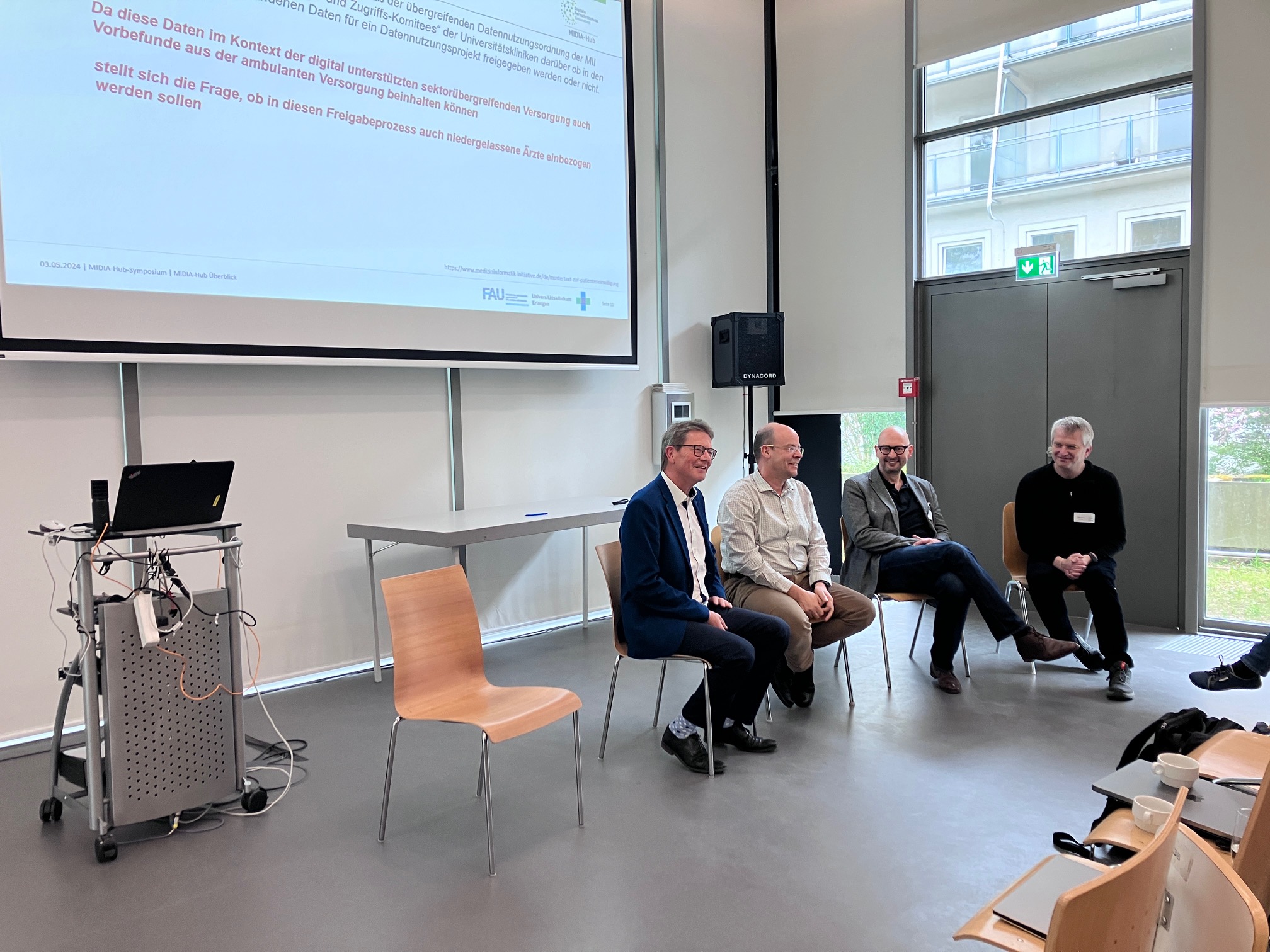
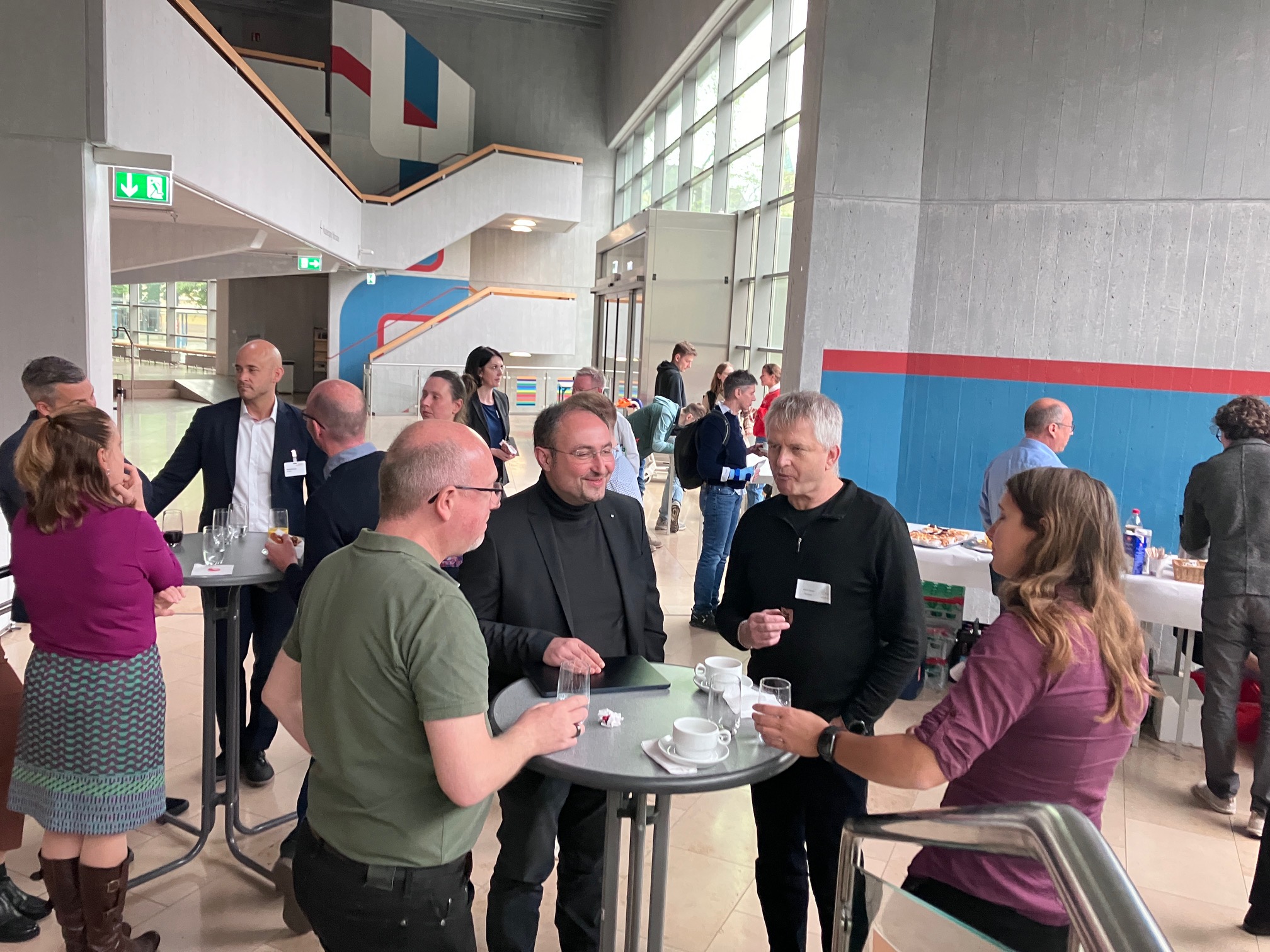
After a brief overview by MIDIA Hub Manager Ulli Prokosch, various aspects of the project were presented by members of the MIDIA Hub team:
The basis for the portal is the teamplay digital health platform (tdhp) from Siemens Healthineers. Stefan Resch from Siemens Healthineers presented the tdhp and its various expansion options.
All stakeholders (patients, general practitioners, university hospitals) are involved in the development of the doctor-patient portal. Ines Leb from the Friedrich-Alexander University Erlangen-Nuremberg gave an overview of this user-centred development process and the evaluation of the stakeholder workshops held so far.
In his presentation, Martin Boeker from Klinikum rechts der Isar Munich gave an overview of the contractual regulations and legal requirements for cross-sector data exchange via the portal. In order to be able to exchange patient data via the doctor-patient portal for medical treatment, patients must sign a patient information and consent form to use the portal for treatment purposes. In order to be able to use the exchanged data for research purposes, MII broad consent must then be obtained at the respective university hospital in a second step.
Consent management will also take place digitally via the patient portal. In his presentation, Marcel Erpenbeck from Erlangen University Hospital presented the necessary infrastructure that has already been implemented in Erlangen.
In the panel discussion moderated by Ulli Prokosch on the use of MII broad consent in this context, all participating doctors from the clinic and practice rated this approach to consent management positively.
Christina Engl and Viola Pongratz, two neurologists from the neuroimmunological outpatient clinic at Klinikum rechts der Isar, presented various clinical scenarios that could be significantly supported by the use of an interactive and intelligent doctor-patient portal. The possibility of integrating digital biomarkers, e.g. recorded via wearables, was also discussed.
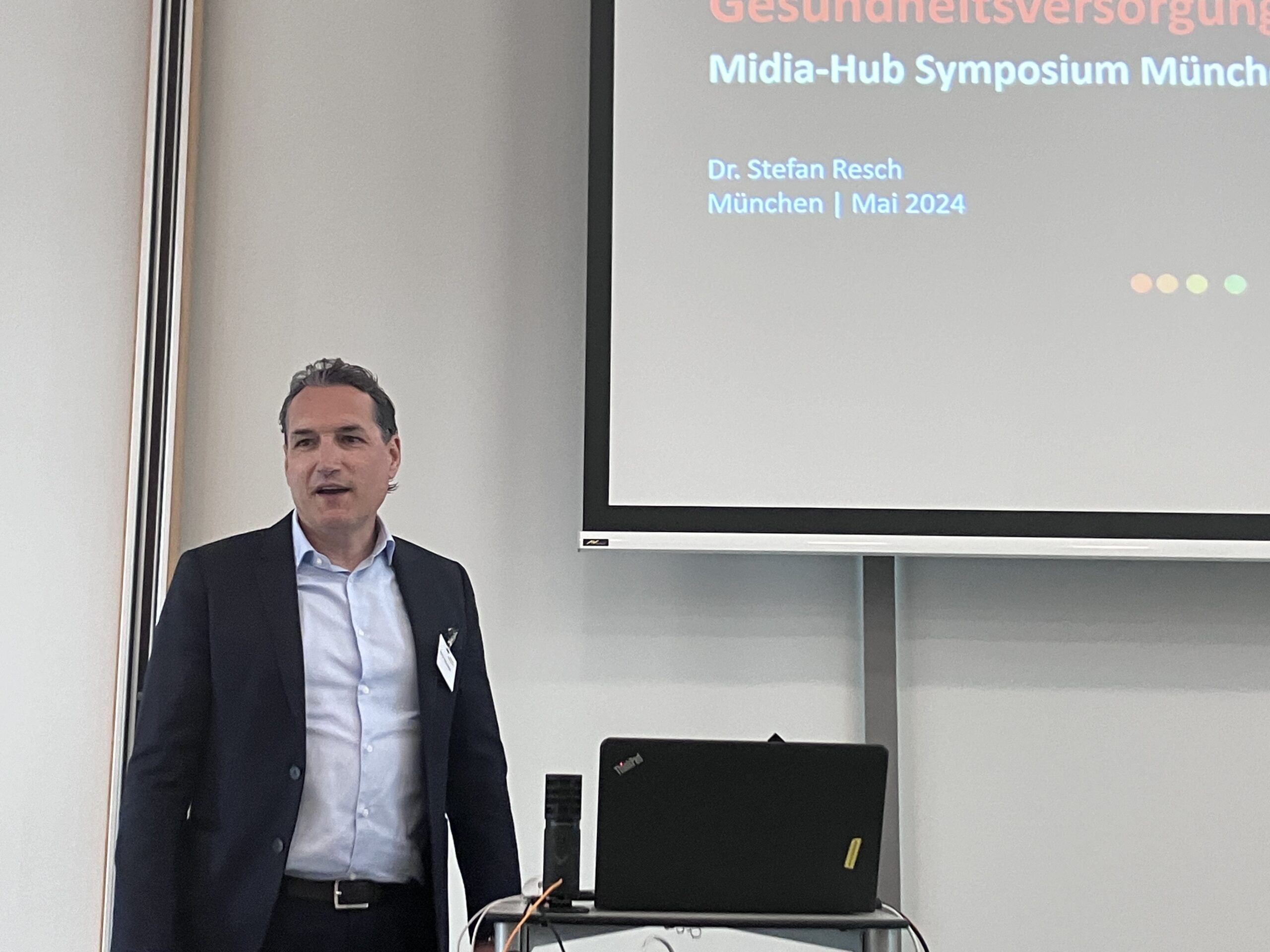
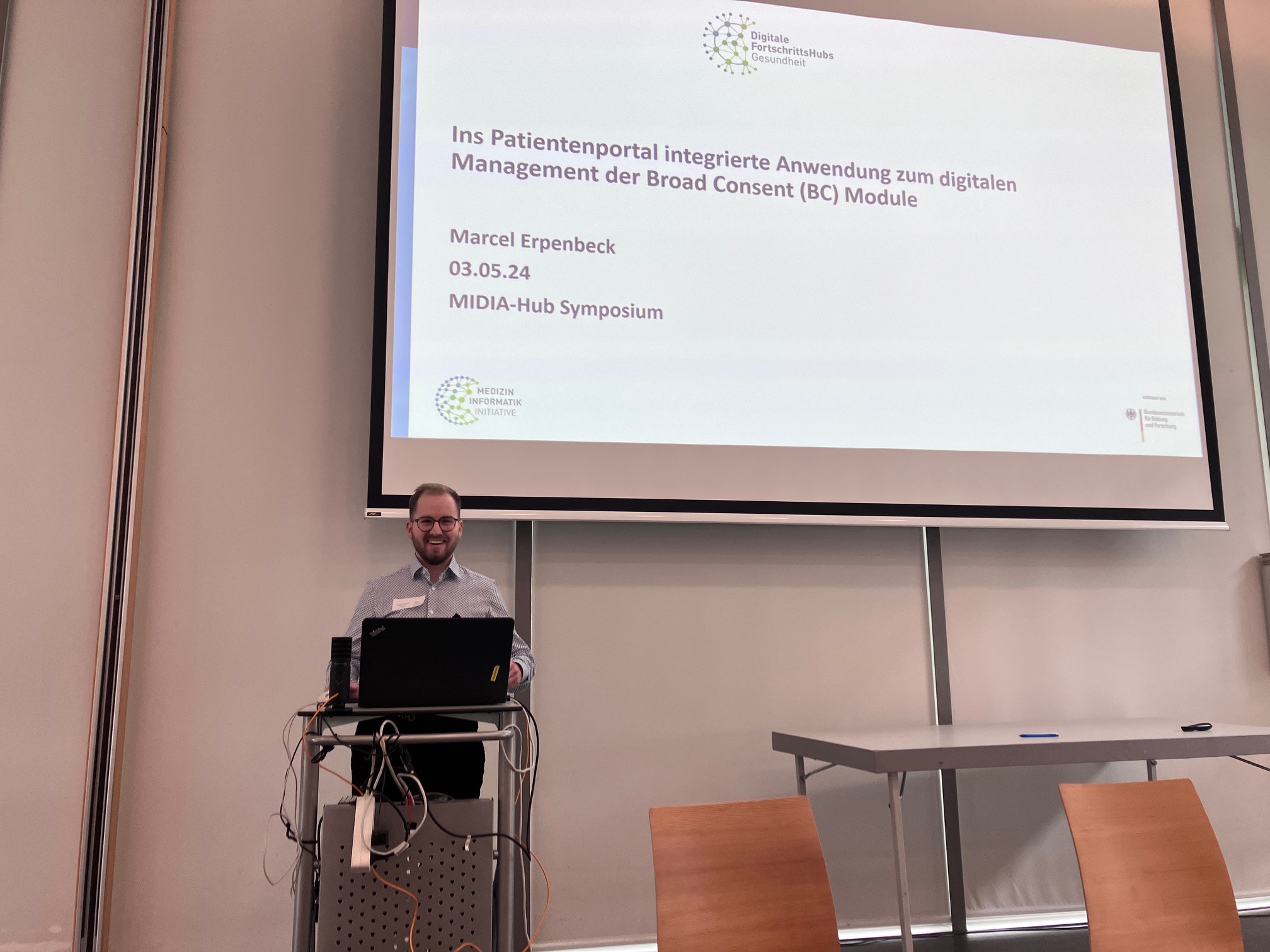
The symposium was rounded off with presentations from other projects in the field of e-health.
In his impressive presentation, Eimo Martens, Senior Consultant in Cardiology and Head of the Telemedicine Centre at Klinikum rechts der Isar, showed how the use of telemonitoring can improve the care of cardiological patients. However, it also became clear in the subsequent discussion that it will take many years to establish the corresponding infrastructure.
In his presentation, Sebastian Hilke from Bayern Innovativ gave an insight into the TI model region of Franconia, where new TI applications such as e-prescription, electronic patient file (ePA), TI messenger, KIM and Authenticator are being trialled and evaluated in day-to-day care.
In her presentation, Hanna Hübner from the gynaecological clinic at Erlangen University Hospital showed how home monitoring can be successful for patients with breast cancer. As part of the DigiOnko project in Erlangen, affected women can conveniently measure blood values, ECG measurements and other parameters themselves at home and send them directly to the university hospital.
